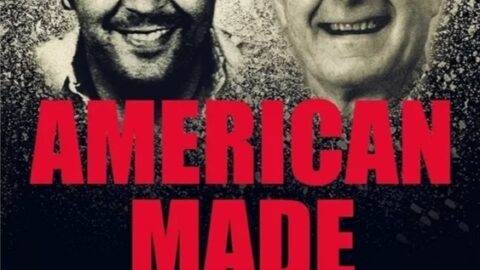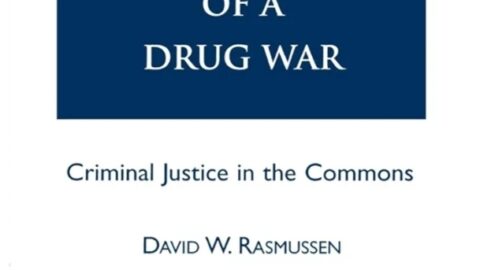The banking and commercial interests had strong reasons to ensure that Jefferson Davis was never put on trial, as a legitimate trial could have legally and publicly exposed the unconstitutional nature of the war and the fraudulent basis of Reconstruction, potentially undoing their economic and political gains.
Why Was There No Trial for Jefferson Davis?
A Trial Could Have Legally Proven Secession Was Constitutional
- If Davis had been tried for treason, his defense could have cited the Declaration of Independence and the Constitution to argue that secession was a legal right, as many Northern politicians, including Daniel Webster and even Lincoln himself before the war, had previously acknowledged.
- A ruling in favor of Davis would have delegitimized the Union’s war effort, exposing it as an illegal conquest rather than a justified war to “preserve the Union.”
It Could Have Exposed the True Motives Behind the War
- The war was not primarily about ending slavery but about consolidating federal and financial control over the entire nation.
- If a court had examined the role of banking and industrial interests in driving the war, it would have unmasked the war as a financial power grab, not a moral crusade.
It Could Have Challenged the National Debt System
- The Civil War was financed largely through debt issued by private bankers, particularly European financiers like the Rothschilds and major Northern banking firms.
- If the war had been ruled unconstitutional, the legitimacy of the war debt could have been challenged, threatening the banking empire’s control over U.S. finances.
It Would Have Disrupted Radical Reconstruction
- The Union’s post-war plan was not about “rebuilding” the South, but about economically subjugating it through military occupation, high taxation, and debt-driven reconstruction schemes.
- A trial that vindicated the South’s legal right to secede would have completely undermined the justification for Reconstruction, potentially returning self-governance to the Southern states.
It Would Have Exposed the Lincoln Administration’s Overreach
- Martial law, suspension of habeas corpus, censorship, and war crimes committed by Union forces could have been legally scrutinized.
- A trial could have revealed the Northern war machine’s unconstitutional acts, setting a precedent for rolling back the federal government’s expanded wartime powers.
Who Benefited from Avoiding the Trial?
- Banking Interests: Ensured their war debt would be repaid and retained control over national finance.
- Industrialists: Allowed the North to impose high tariffs, monopolize Southern industries, and seize resources.
- Radical Republicans: Maintained political control over the South and used Reconstruction as an economic exploitation scheme.
The Trial That Never Happened
The decision not to try Jefferson Davis was not about mercy—it was about protecting the financial and political power structures that had gained control over America. A legitimate trial could have exposed the unconstitutional basis of the war, nullified Northern war gains, and set back the consolidation of centralized banking and corporate power by decades.
It is highly plausible that Abraham Lincoln was initially a tool of the banking and commercial interests that sought to consolidate federal control over the states, particularly the South. However, there is evidence to suggest that toward the end of the war, Lincoln may have resisted these forces—leading to his assassination.
Lincoln’s Relationship with Banking and Commercial Interests
Lincoln Funded the War Through Bank Loans
- Early in the war, Lincoln relied on private banking interests to finance the Union.
- When foreign bankers, particularly the Rothschild-controlled European banking houses, demanded high-interest loans, Lincoln refused and instead issued government-backed Greenbacks, bypassing the banks.
- This act threatened the power of private banking institutions, as it demonstrated that the U.S. government could fund itself without going into debt to bankers.
He Defended High Tariffs That Benefited Northern Industrialists
- The Morrill Tariff (1861) was one of the highest in U.S. history and disproportionately harmed the South.
- Northern industrialists supported centralization and federal control, which allowed them to impose tariff policies that enriched the North at the South’s expense.
- This benefited the commercial elite in New York, Boston, and Chicago while devastating the Southern economy.
Reconstruction Was an Opportunity for Plunder
- The commercial and banking elites had a post-war plan:
- Keep the South economically dependent on the North.
- Allow Northern railroad and industrial tycoons to seize Southern land and infrastructure.
- Create debt traps through Reconstruction policies, forcing the South into perpetual financial servitude.
- Radical Republicans, supported by banking and commercial interests, wanted the South totally subjugated and carved up for economic exploitation.
Did Lincoln Rebel at the Last Minute?
While Lincoln fully supported the war and centralization, his post-war plans began to diverge from the interests of the banking elite.
Lincoln Wanted a Lenient Reconstruction
- In his Second Inaugural Address, Lincoln called for reconciliation, not revenge:
- “With malice toward none; with charity for all…”
- He intended to allow the South to rejoin the Union quickly and with minimal punishment rather than be exploited.
- This was not what the banking and industrial elite wanted—they sought total control over the South’s economy.
He Opposed Harsh Punishment of the South
- Radical Republicans, led by Thaddeus Stevens and Charles Sumner, pushed for:
- Military occupation of the South.
- Forced land redistribution (seizing land from ex-Confederates).
- Permanent economic subjugation of the Southern states.
- Lincoln opposed these extreme measures, which put him at odds with the very interests that had backed his war effort.
John Wilkes Booth’s Conspirators Had Ties to Commercial Interests
- Booth was not just a lone Southern sympathizer—his conspiracy had financial and political backers.
- Some historians believe that Northern banking and commercial elites had a vested interest in Lincoln’s death, as his post-war policies threatened their economic conquest of the South.
What Happened After Lincoln’s Death?
With Lincoln out of the way:
Radical Republicans took over Reconstruction and militarized the South for nearly a decade.
Northern industrialists and bankers expanded their power without resistance.
The Greenback experiment died, and the U.S. returned to banker-controlled currency.
Reconstruction debt and taxes crushed the South, keeping it economically inferior to the North for generations.
Conclusion: Lincoln’s Fate Was Sealed
- Lincoln was initially a tool of commercial and banking interests but may have tried to moderate their influence at the end of the war.
- His assassination conveniently removed the last obstacle to a full-scale financial and political takeover of the South.
- The forces behind his death were likely not just Southern sympathizers but also the banking and industrial elite who stood to profit immensely from an unchecked Reconstruction.
Lincoln may have realized too late that he was being used—and for that, he was eliminated.







